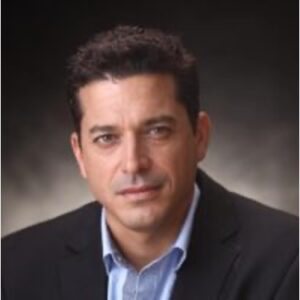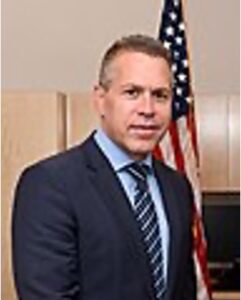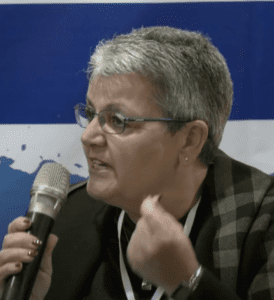As the Gaza war rages, Israeli funds target US college campuses and push to redefine antisemitism in US law – part of a sometimes covert operation by the Israeli government to strike back at student protests, human rights organizations and other voices of dissent…
None of the groups identified below have registered under the Foreign Agents Registration Act (Fara). This law requires groups receiving funds or direction from foreign countries to provide public disclosures to the US Department of Justice.
by Lee Fang and Jack Poulson, reposted from The Guardian, June 24, 2024
Last November, just weeks into the war in Gaza, Amichai Chikli, a brash, 42-year-old Likud minister in the Israeli government, was called into the Knesset, Israel’s parliament, to brief lawmakers on what could be done about rising anti-war protests from young people across the United States, especially at elite universities.
“I’ve said it before, and I’ll say it again now, that I think we should, especially in the United States, be on the offensive,” argued Chikli.
Chikli has since led a targeted push to counter critics of Israel. The Guardian has uncovered evidence showing how Israel has relaunched a controversial entity as part of a broader public relations campaign to target US college campuses and redefine antisemitism in US law.
Seconds after a smoke alarm subsided during the hearing, Chikli assured the lawmakers that there was new money in the budget for a pushback campaign, which was separate from more traditional public relations and paid advertising content produced by the government. It included 80 programs already under way for advocacy efforts “to be done in the ‘Concert’ way”, he said.
The “Concert” remark referred to a sprawling relaunch of a controversial Israeli government program initially known as Kela Shlomo, designed to carry out what Israel called “mass consciousness activities” targeted largely at the US and Europe. Concert, now known as Voices of Israel, previously worked with groups spearheading a campaign to pass so-called “anti-BDS” state laws that penalize Americans for engaging in boycotts or other non-violent protests of Israel.
Its latest incarnation is part of a hardline and sometimes covert operation by the Israeli government to strike back at student protests, human rights organizations and other voices of dissent.
Voices’ latest activities were conducted through non-profits and other entities that often do not disclose donor information. From October through May, Chikli has overseen at least 32m shekels, or about $8.6m, spent on government advocacy to reframe the public debate.
Institute for the Study of Global Antisemitism and Policy (ISGAP) scores a powerful victory

It didn’t take long for one of the American advocacy groups closely coordinating with Chikli’s ministry, the Institute for the Study of Global Antisemitism and Policy, or ISGAP, to score a powerful victory.
In a widely viewed December congressional hearing on alleged antisemitism among student anti-war protesters, several House GOP lawmakers explicitly cited ISGAP research in their interrogations of university presidents. The hearing concluded with Representative Elise Stefanik’s viral confrontation with the then president of Harvard University, Claudine Gay, who later retired from her role after a wave of negative news coverage.
The ISGAP, which reportedly received the majority of its funding in 2018 from the Israeli agency that was running Concert, touted its congressional public relations coup at a 7 April event at the Palm Beach Country Club.
“All these hearings were the result of our report that all these universities, beginning from Harvard, are taking a lot of money from Qatar,” bragged Natan Sharansky, a former Israeli Knesset member (MK) who previously held Chikli’s role and now chairs the ISGAP. Sharansky told the assembled supporters that Stefanik’s remarks had been viewed by 1 billion people.
[Editor’s note: Natan Sharansky was the originator of the formulation used in the newly fabricated definition of antisemitism and helped it become adopted by the US state department under Hannah Rosenthal. At the time, Sharansky was Israeli minister for diaspora affairs]
The ISGAP has continued to shape congressional investigations of universities over claims that protests over Israel’s human rights record are motivated by antisemitism, and the organization has been deeply involved in the campaign to enshrine new laws that redefine antisemitism to include certain forms of speech critical of the nation of Israel.
National Black Empowerment Council (NBEC) & CyberWell
Other American groups tied to Voices have pursued a range of initiatives to bolster support for the state of Israel. One such group listed publicly as a partner, the National Black Empowerment Council (NBEC), published an open letter from Black Democratic politicians pledging solidarity with Israel.
Another group, CyberWell, a pro-Israel anti-disinformation group led by former Israeli military intelligence and Voices officials, has established itself as an official “trusted partner” to TikTok and Meta, helping both social platforms screen and edit content. A recent CyberWell report called for Meta to suppress the popular slogan “From the river to the sea, Palestine will be free”.
The dawn of the Gaza war after the 7 October 2023 terror attacks by Hamas sparked the third reboot for the government-backed company, which was originally chartered through the now-downgraded ministry of strategic affairs. The revamp was first disclosed through a little-noticed budget document posted by the Israeli government on 1 November, which noted that Voices would be freezing all prior campaigns to support activities related to “winning the war over Israel’s story”.
The organization is now under the administration of Chikli, the Israeli minister for diaspora affairs.
Haaretz and the New York Times recently revealed that Chikli’s ministry had tapped a public relations firm to secretly pressure American lawmakers. The firm used hundreds of fake accounts posting pro-Israel or anti-Muslim content on X (formerly Twitter), Facebook and Instagram. (The diaspora affairs ministry denied involvement in the campaign, which reportedly provided about $2m to an Israeli firm for the social media posts.)
But that effort is only one of many such campaigns coordinated by the ministry, which has received limited news coverage. The ministry of diaspora affairs and its partners compile weekly reports based on tips from pro-Israel US student groups, some of which receive funding from Israeli government sources.
Hillel International
For example, Hillel International, a co-founder of the Israel on Campus Coalition network and one of the largest Jewish campus groups in the world, has reported financial and strategic support from Mosaic United, a public benefit corporation backed by Chikli’s ministry. The longstanding partnership is now being utilized to shape the political debate over Israel’s war. In February, Hillel’s chief executive, Adam Lehman, appeared before the Knesset to discuss the strategic partnership with Mosaic and the ministry of diaspora affairs, which he said had already produced results.
“We are changing administrations. Just last week, MIT, the same president who was lambasted in front of Congress, took the step of fully suspending her Students for Justice in Palestine chapter for crossing lines, and for creating an unwelcoming environment for Jewish students,” said Lehman, referencing the president of the Massachusetts Institute of Technology, Sally Kornbluth.
Hillel International, CyberWell, the NBEC, the Israeli ministry of diaspora affairs and Voices of Israel/Concert did not respond to a request for comment.
This investigative report reviewed recent government hearings, Israeli corporate filings, procurement documents and other public records. While private individuals and foundations primarily fund many of the organizations devoted to pro-Israel advocacy, most likely without foreign direction, the records point to substantial Israeli government involvement in American politics about the Gaza war, free speech on college campuses and Israel-Palestine policy.
Unparalleled foreign influence over American political debate
“There’s a fixation on policing American discourse on the US-Israel relationship, even college campus discourse, from Israel, going all the way up to Prime Minister Netanyahu,” said Eli Clifton, a senior adviser at the Quincy Institute for Responsible Statecraft. “One struggles to find a parallel in terms of a foreign country’s influence over American political debate.”
None of the groups identified in this story’s reporting have registered under the Foreign Agents Registration Act (Fara). This law requires groups receiving funds or direction from foreign countries to provide public disclosures to the US Department of Justice.
“There’s a built-in assumption that there’s nothing at all weird about viewing the US as sort of an open field for Israel to operate in, that there are no limitations,” said Lara Friedman, president of the Foundation for Middle East Peace.
Israeli minister envisions a “PR commando unit”
Much of what was previously known about Concert was initially reported by the Forward, a Jewish American outlet, and the Seventh Eye, an independent investigative news site based in Israel. The history of Concert traces back to 2017, when the ministry of strategic affairs began developing a program to conduct secretive campaigns designed to shift public opinion. The officials envisioned an “outside the government” vehicle to “provide a rapid and coordinated response against the attempts to tarnish the image of Israel around the world”.
Then minister Gilad Erdan envisioned in Concert a “PR commando unit” capable of covertly launching widespread social media condemnations of celebrities who criticized Israel’s government. Internal documents obtained by the Seventh Eye showed that many of the recipients of Concert funds were American Christian Zionist organizations, such as Christians United for Israel, Proclaiming Justice to the Nations and the Israel Allies Foundation.

One of the largest American recipients was the ISGAP, which reportedly received at least $445,000, an amount equivalent to 80% of its total revenue in 2018, as part of a $1.3m pledge to the organization. Dr Charles Small, the executive director of the ISGAP, disputed the figures when asked by the Forward, though he gave conflicting comments to a Canadian news outlet.
Small previously contended that the ISGAP did not require Fara registration because his organization qualified for the academic exemption in the law, which allows organizations to take foreign funding as long as they do not engage in political advocacy. Yet Yale, which once housed the group, shut down the ISGAP’s predecessor in 2011 due to concerns over its scholarly rigor.
Israeli General/intelligence officer runs ISGAP
Last year, Brig Gen Sima Vaknin-Gill, a former intelligence officer and liaison to Concert in the Israeli government, became managing director of the ISGAP.
In January, Vaknin-Gill and Small testified before a Knesset committee debating the proper response to critics of Israel. During the testimony, several witnesses discussed the need to encourage countries to adopt the International Holocaust Remembrance Alliance’s definition of antisemitism, which equates harsh criticism of Israel and anti-Zionism – including claims that the state of Israel is a “racist endeavor” – with antisemitism.
Many critics on both the left and right have taken issue with the International Holocaust Remembrance Alliance (IHRA) definition, which they say stifles the first amendment by curtailing the ability to criticize a government entity and wields concerns around antisemitism as a cudgel to penalize critics of Israeli policy.
New antisemitism definition is strategic priority for the state of Israel.
But the participants in the hearing made clear that the IHRA definition should be a strategic priority for the state of Israel.
“Combat Antisemitism Movement has championed the IHRA definition,” Vaknin-Gill noted, referencing a dark money partner of the ISGAP, Concert and the ministry of diaspora affairs. (The Combat Antisemitism Movement is chaired by Sharansky; Vaknin-Gill is a board member.) “We shifted the focus to work at the local level,” said Vaknin-Gill. “We’ve found that mayors and states – it’s much easier to work with them and actually make the definition into something real.”
Georgia’s governor, Brian Kemp, signed legislation that revised Georgia’s hate crime statute to include the IHRA definition of antisemitism in January, making it possible for certain criticisms of Israel to lead to increased prison sentences. South Carolina and South Dakota have followed suit with similar laws in recent months. Another related bill in Florida, HB 187, has passed both houses of the state legislature and awaits signature by the governor, Ron DeSantis. Emails obtained by a record request show that Kennedy Starnes, an official in the Israeli foreign ministry, corresponded with state senator Lori Berman about the legislation.

Congress has moved forward with similar IHRA legislation. Last month, the House passed legislation that encodes the IHRA definition of antisemitism into Department of Education standards. If passed by the Senate and signed into law, the bill will allow the federal government to cut funding to institutions of higher learning or initiate civil rights violations for universities that allow certain criticisms of Israel.
We must increase our power
Small has similarly testified at multiple Knesset hearings, updating Israeli lawmakers on the ISGAP’s strategy and its fight to shape the discourse on college campuses.
“This is a historic moment in which we must increase our power in historical proportions in terms of the history of the Jewish people,” said Small at the January hearing. “And the state of Israel, we need all the tools that the state has.” The previous month, he testified at another Knesset hearing, at which he claimed that the student organization Students for Justice in Palestine was the “armed forces” of the Muslim Brotherhood.
Last month, Small met with House oversight committee members in a closed-door briefing on the matter, shortly before House Republicans stepped up an investigation into the funding sources of pro-Palestinian campus groups. The ISGAP has also made claims that Qatari funding of Cornell University’s medical program has shaped student concerns around the number of civilians killed by Israel’s military in Gaza.
At the Palm Beach event in April, Small argued that “intersectionality is actually a concept that we can use” to “fight a billion Muslims and all liberal people in the western world”, a concept he called “tai chi”. Small suggested one line of argumentation, that political Islam “wants to kill Jews, it wants to subjugate women, it wants to kill all gay people”.
Neither the ISGAP’s foreign funding research nor its website discloses the organization’s former financial ties to Israel. Observers note that claims of an academic exemption to Fara may not be appropriate for any organization such as the ISGAP that is coordinating with the Israeli government and engaged in direct congressional advocacy.
“While there are several exemptions to Fara registration, nearly all the exemptions are overridden if a person or group seeks to influence American public policy and public opinion at the suggestion or behest of the foreign government,” said Craig Holman, an expert on lobbying rules at Public Citizen.
While the full extent of Israeli government influence on US institutions is not known, Knesset debate provides a window into Israeli strategy and interactions with US advocacy groups.
The Knesset has held several hearings with American Jewish organizations to discuss coordination. Margarita Spichko, an official from Chikli’s ministry of diaspora affairs, testified in December that her office issues a weekly report based on information gathered from partners in the US, including Hillel.
Hadas Lorber, then working as an aide to Israel’s national security council, noted during the same hearing that the prime minister’s office had met regularly with DC-based groups as part of “an honest attempt to see how we can combat antisemitism, how we can increase legislation in front of all the different members of Congress, to promote legislation in the US that will combat antisemitism, that will work on campuses”.
In March, the Knesset brought together leaders of major pro-Israel groups from around the world to report on activities around the war. Lawmakers at the hearing pressed advocacy groups to explain how they were pushing back on campus protests. Meir Holtz, the president of Mosaic United, noted in the hearing that the Israeli government this year will invest 48 million shekels, or about $12.8m, into his organization for campus outreach.
Essential for Israel to use front groups
Last month, Alon Lavi, a representative from the Israeli ministry of foreign affairs, implored Knesset members to continue financial support for campaigns related to US policy and campus discourse. He warned that the state of Israel could not lead the effort, and should instead rely on non-governmental organizations and broader civil society.
“We need to form coalitions with elements inside that want to help us, and part of that is mobilizing the leadership, the university leadership, student leadership, the mayors, the local congressmen in states and towns,” Lavi said.
One of the lawmakers at the hearing, MK Meir Cohen, was unimpressed. “I don’t feel there is a sense of emergency,” Cohen noted, noting that the ministry’s budget plans amounted to little.
“If I may, MK Cohen, I agree with you completely,” replied Ron Brummer, a representative of the ministry of diaspora affairs who works closely with Chikli. “We need to put down 300m shekels, not 30m shekels.”
RELATED:
-
-
- International campaign is criminalizing criticism of Israel as ‘antisemitism’
- Landmark bill restricting criticism of Israel sneaks through South Carolina Senate
- Israel’s 24-7 ‘War’ on Palestine Rights Movement Advances Anti-boycott Legislation, Torpedoes Events
- Inside the Clandestine World of Israel’s ‘BDS-busting’ Ministry
- Shadowy Israeli App Turns Jewish Americans Into Foot Soldiers In Online War
- Anti-Defamation League ramps up lobbying to promote controversial definition of antisemitism
-





